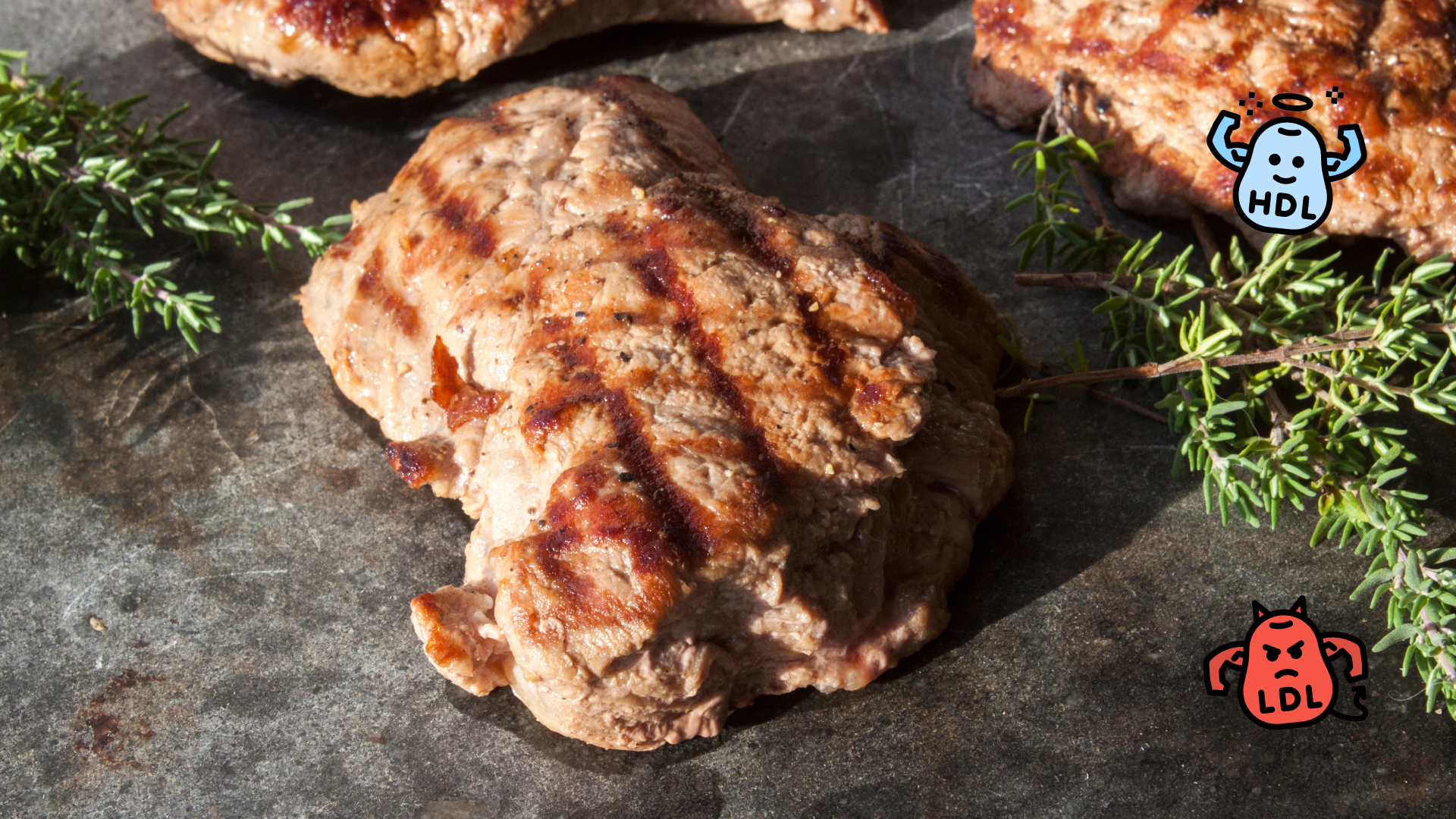Moose meat has been a popular food in North America. It is known for its unique flavor, tenderness, and versatility in cooking. While moose meat is a leaner alternative to beef, there is a lack of understanding regarding its cholesterol content and heart health benefits.
Moose meat is also a lean, protein-rich meat that is low in fat and high in vitamins and minerals. It has a unique, rich flavor that is often compared to beef. Moose meat is commonly used in a variety of dishes, including burgers, stews, and roasts.
In this article, we aim to explore the relationship between moose meat and heart health, including its nutritional content, cholesterol levels, and other heart-healthy nutrients. So this begs the question: is moose meat high in cholesterol?
What is Cholesterol?
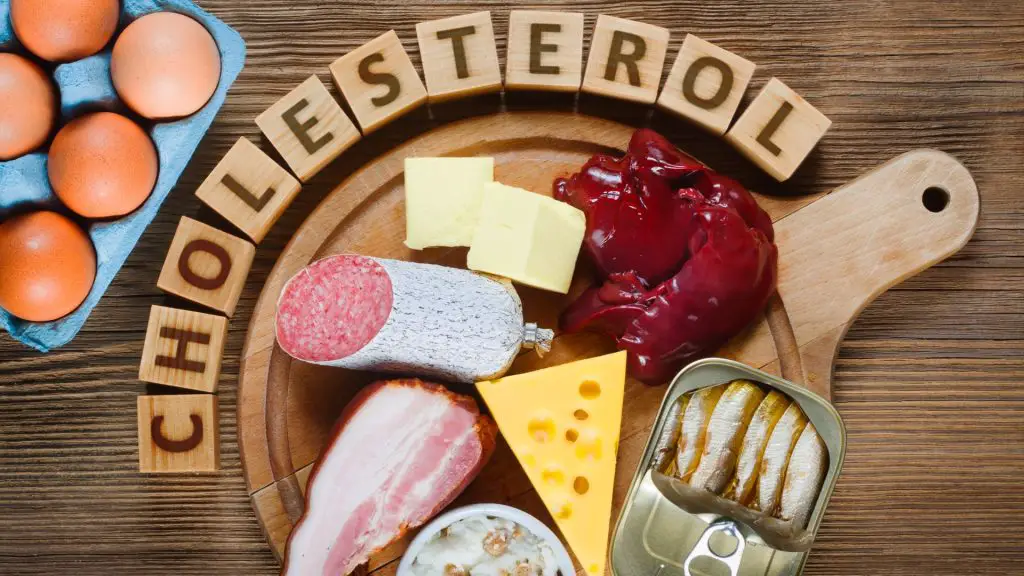
Cholesterol is a type of lipid that is found in the bloodstream and cells of the body. It is essential for the production of hormones, vitamin D, and bile acids that aid in the digestion of fats. There are two types of cholesterol: low-density lipoprotein (LDL) and high-density lipoprotein (HDL).
LDL is often referred to as “bad cholesterol” as it can accumulate in the arteries and contribute to the development of heart disease. HDL, on the other hand, is known as “good cholesterol” as it helps to remove LDL from the bloodstream and reduce the risk of heart disease.
How Cholesterol Affects Heart Health:
Cholesterol is a type of fat that’s needed for many important bodily functions. Still, when there is too much of it in the bloodstream, it can build up in the walls of the arteries and lead to atherosclerosis, a condition where the arteries become narrow and stiff.
This can reduce blood flow to the heart and increase the risk of heart disease, heart attack, and stroke. Therefore, it’s important to maintain healthy cholesterol levels through a balanced diet, regular exercise, and medication if needed.
Recommended Cholesterol Levels for Heart Health:
The American Heart Association recommends that adults maintain an LDL cholesterol level of less than 100 milligrams per deciliter (mg/dL) and an HDL cholesterol level of 40 mg/dL or higher. Additionally, total cholesterol levels should be less than 200 mg/dL.
Heart Benefits of Moose Meat
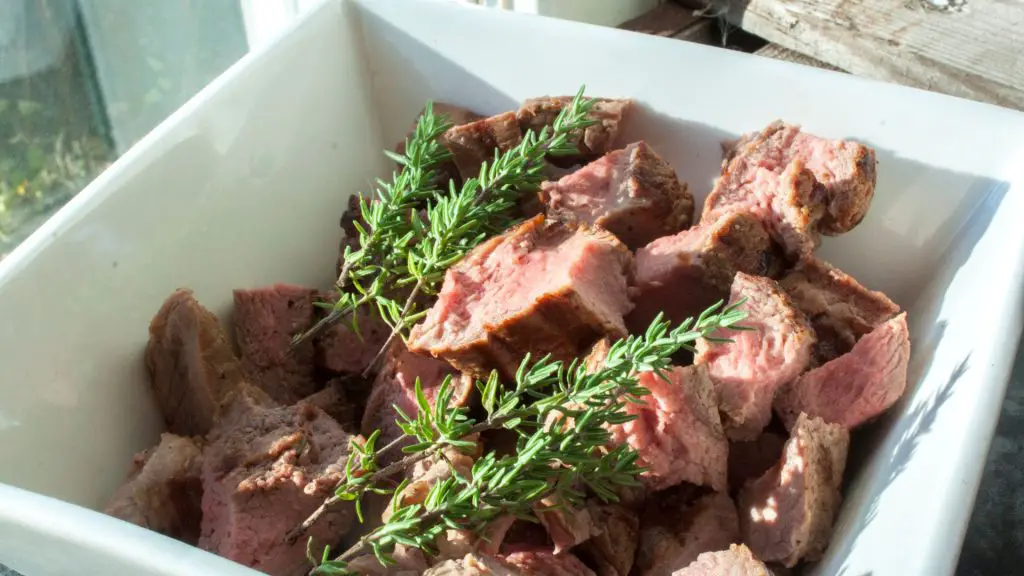
Moose meat offers several heart-healthy benefits. It is high in protein, which helps build and repair tissues, including heart muscles. Moose meat is also a good source of iron, which helps transport oxygen throughout the body, including to the heart. Iron deficiency can lead to anemia, a condition where the body does not have enough healthy red blood cells to function properly.
In addition, moose meat is a good source of vitamin B12, which is essential for maintaining healthy nerve and blood cells. Vitamin B12 also helps prevent a type of anemia called megaloblastic anemia which can make people tired and weak.
Compared to beef, moose meat is lower in saturated fat, which is known to raise levels of LDL cholesterol, also known as “bad” cholesterol, and increase the risk of heart disease. This makes moose meat a healthier choice for those looking to reduce their intake of saturated fat.
Overall, the nutritional content of moose meat offers several heart-healthy benefits that make it a great choice for those looking to maintain a healthy heart. However, it is important to note that moderation is key, and excessive consumption of any type of meat can lead to negative health consequences.
Comparison of Moose Meat to Beef
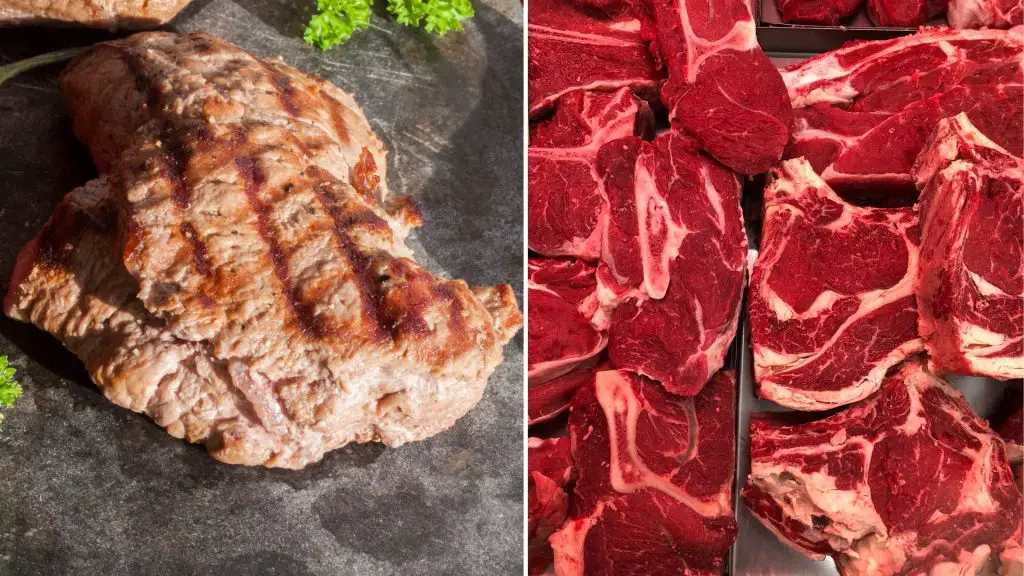
When comparing moose meat to beef, there are several differences in nutritional content. Moose meat is leaner than beef, with less total fat and saturated fat.
Moose meat is also lower in calories than beef, making it a good choice for those looking to maintain a healthy weight.
Additionally, moose meat is higher in protein than beef and contains more omega-3 fatty acids.
Cholesterol Levels in Moose Meat Compared to Beef:
As previously mentioned, high levels of saturated fats can contribute to high cholesterol levels in the body. Many people assume that red meat is always high in saturated fat, which can lead to the belief that all red meats are bad for heart health. However, this is not entirely accurate.
When comparing moose meat to beef, moose meat has been found to have lower levels of saturated fat. Moose meat also contains high levels of healthy unsaturated fats, such as omega-3 and omega-6 fatty acids, which have been linked to improved heart health.
In terms of cholesterol levels, moose meat is actually lower in cholesterol than beef. A 3-ounce serving of cooked moose meat contains about 50 milligrams of cholesterol, while the same serving size of cooked beef contains about 73 milligrams of cholesterol. This difference may seem small, but it can add up over time, especially for individuals who consume red meat regularly.
It’s worth noting that the way the meat is prepared can also affect its cholesterol levels. For example, frying or grilling meat can increase its cholesterol content, while baking or boiling it can help keep cholesterol levels low. It’s also important to pay attention to portion sizes, as consuming too much of any type of meat can contribute to high cholesterol levels.
Nutritional Content of Moose Meat vs Beef
| Nutrient | Moose Meat | Beef |
|---|---|---|
| Calories | 177 | 250 |
| Protein | 36.5 g | 26.1 g |
| Fat | 2.3 g | 18.2 g |
| Saturated fat | 0.7 g | 7.6 g |
| Cholesterol | 73 mg | 86 mg |
| Iron | 3.4 mg | 1.8 mg |
| Vitamin B12 | 2.4 mcg | 2.4 mcg |
As you can see, moose meat is lower in fat and saturated fat than beef. It also has slightly lower cholesterol levels and higher amounts of iron and vitamin B12. Moose meat is also higher in protein, which is important for building and repairing tissues, including heart muscles.
Compared to beef, moose meat is leaner and has fewer calories, making it a healthier option for those concerned about their heart health. It is also higher in certain nutrients, such as iron and vitamin B12. Additionally, moose meat is often hunted, and it is free of hormones and antibiotics commonly found in commercially-raised beef.
Summary of My Findings
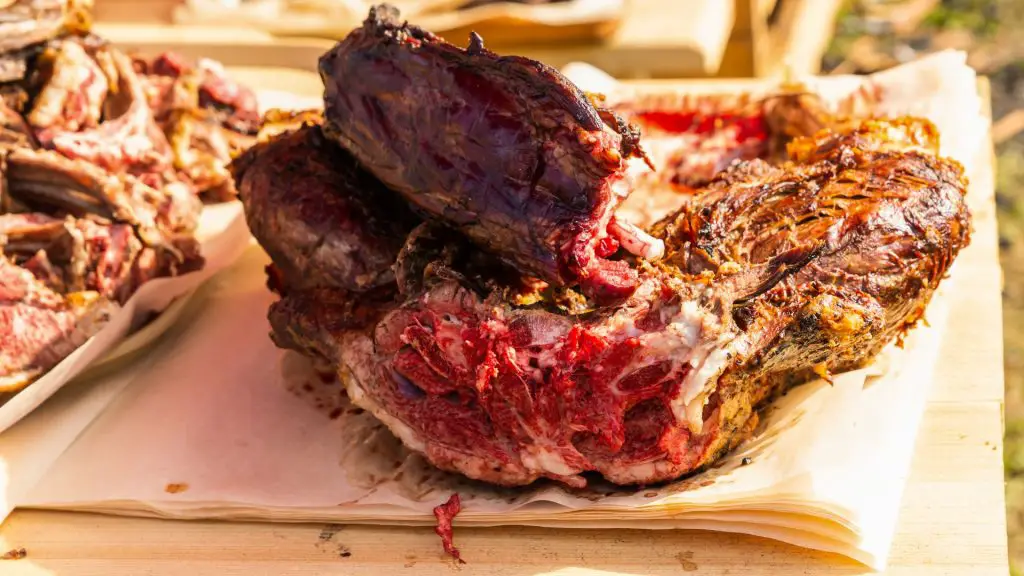
In conclusion, moose meat is a lean and nutritious alternative to beef that offers several heart-healthy benefits. Compared to beef, moose meat is lower in saturated fat, calories, and cholesterol, making it a great choice for those looking to maintain healthy cholesterol levels and reduce the risk of heart disease.
Moose meat is a good source of protein, iron, and vitamin B12, all of which are essential for maintaining a healthy heart. In addition, moose meat contains healthy unsaturated fats, such as omega-3 and omega-6 fatty acids, which have been linked to improved heart health.
It’s important to note that while moose meat offers several heart-healthy benefits, moderation is key. Excessive consumption of any type of meat can lead to negative health consequences. It’s also important to pay attention to the preparation and portion sizes of the meat, as this can affect its cholesterol levels.
In terms of heart health, maintaining healthy cholesterol levels is essential. High levels of LDL cholesterol can lead to the development of heart disease, while low levels of HDL cholesterol can increase the risk of heart disease. The American Heart Association recommends that adults maintain an LDL cholesterol level of less than 100 mg/dL and an HDL cholesterol level of 40 mg/dL or higher.
Overall, moose meat is a great choice for those looking to maintain a healthy heart. Its nutritional content offers several heart-healthy benefits, and its lower levels of saturated fat and cholesterol make it a healthier alternative to beef. However, as with any type of food, moderation is key, and it’s important to maintain a balanced and varied diet for optimal health.
